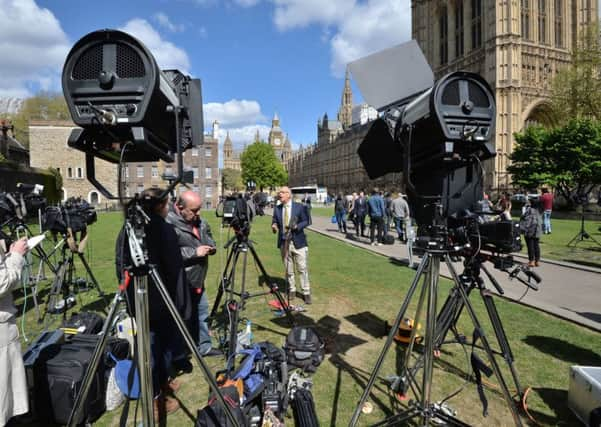Ben Lowry: DUP are unlikely to retain their clout in the next House of Commons


The next election was set to be the local council elections in 2019, with no Assembly or Westminster elections until the year after that.
This was talked of as a period of stable government in which the DUP and Sinn Fein might make hard decisions on matters such as health reform, without fear of electoral fallout.
Far from it.
Advertisement
Hide AdAdvertisement
Hide AdWhen Ulster voters cast their Westminster ballots on June 8, it will be the seventh time in three years that they have participated in an election (following the 2014 MEP elections, 2014 council, 2015 general, 2016 Stormont, 2016 Brexit, 2017 Stormont).
It might even be, if the Stormont talks fail, that an eighth election since 2014 is called before this year is out.
It was interesting to note that James Brokenshire avoided putting fresh pressure on the political parties yesterday to reach agreement on devolution. He might, for example, have said that a failure to reach agreement by his informal deadline of early May would lead to a joint Stormont and general election on June 8.
Mr Brokenshire cannot be unaware that such a deadline would probably have delighted Sinn Fein, which would then have a chance to become Stormont’s largest party. Even if it lost a seat or two in such a contest, compared to last month’s tally, its relative position would still be better than it was last year.
Advertisement
Hide AdAdvertisement
Hide AdSome unionists would be on for a fresh Stormont election because they think the closeness of the recent result will bring out more unionists than on March 2, but most politicians will be relieved to avoid such a challenge.
They have enough on their plate trying to hold on to the 11 Westminster seats that unionists currently hold. The constituency most at risk is Fermanagh and South Tyrone, which Tom Elliott narrowly won for the UUP last year despite a clear nationalist majority in the seat (even in the 2015 election in which overall nationalist turnout was depressed).
A combined unionist candidate in North and East Belfast last year meant that the DUP won both those seats by narrow, but clear, margins, so they will again face strong challenges in those two places.
But a combined unionist candidate in South Belfast would be likely to take the seat from the SDLP – unless Sinn Fein stood down to block a unionist win, as it did in 2010.
Advertisement
Hide AdAdvertisement
Hide AdThe DUP, with eight outgoing MPs, will probably still be easily the largest NI party at the House of Commons after June 8, but it will lose much of its current clout there if, as expected, Theresa May increases her narrow Tory majority.
But while poll numbers for the prime minister are, by some measures, as good as those enjoyed by any 10 Downing Street incumbent, there are risks for her too in this election. The Liberal Democrats might revive strongly to take some Tory seats, offsetting any Conservative gains of Labour seats due to the unpopularity of Jeremy Corbyn.
And anti-Brexit campaigners might rally behind a single candidate to oust Tories in key seats, which could deprive her of an overall majority – an unlikely, but disastrous, possibility for the prime minister.
But Mr Corbyn is doing so badly in opinion polls, and is so bitterly opposed by his backbenchers, that there must be a good chance he will no longer be Labour leader by 2020. If he is not deposed by then, perhaps the strain will be so great that he will quit. If so Mrs May might never again face a Labour opposition as weak as the one she faces now.
Hence her bold move.